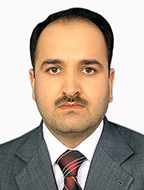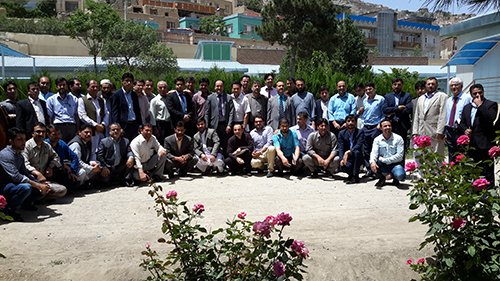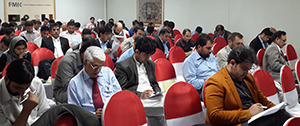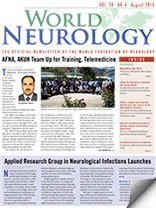By Esmatullah Hamed, MD

Esmatullah Hamed
Trained neurologists are lacking in Afghanistan. Neurological disorders are one of the major disease burdens in this part of the world, and training in this area is scarce. EEG interpretation both in children and adults is a specialized job, and grave errors can occur in patient management when misinterpretations occur.
The Afghan Neurological Association (AFNA) was established to promote the development of clinical neurology and neurological science throughout the country and to promote friendship among neurologists in Afghanistan and the region.
The AFNA formed collaborations with Aga Khan University Hospital (AKUH) Karachi for assessment and identification of strategic training requirements based on the country’s key health care needs. The program is evolving with training arms supporting residents and physicians.
The program not only focuses on the training aspect of physicians, but it also reaches patients in the far parts of Afghanistan with the (FMIC) Medical Institute for Children conducting telemedicine neurology clinics. This effort gives patients access to a modern health facility and expert neurologists in Kabul. To get expert opinions, telemedicine clinics also are conducted with AKUH Karachi.

Regular conferences and workshops are major components of the AFNA, AKU collaboration.
One of the major components of training and sharing knowledge is through regular conferences and workshops. A major function of such meetings of neurology is to facilitate the sharing of knowledge and to help develop ongoing working relationships that can lead to many advances for all. Although publications and electronic communications provide essential ways to communicate, an international meeting offers unparalleled access to peers whose workplaces and problems are far from home, but may be extremely informative.
Both information sharing and clinical and research collaboration become real possibilities. Clinical collaboration today often takes the form of setting up periodic videoconferences, supplementing important opportunities to visit each another.
In this regard, the second Neurology Certificate Course was conducted via video conference June 6-9 in Kabul in collaboration with the FMIC, the Afghan Neurological Association and Aga Khan University in Karachi.

AFNA, AKUH meetings of neurology facilitate knowledge sharing and help develop ongoing working relationships.
Seventeen speakers from neurology, neurosurgery, psychiatry and radiology departments participated, among which 14 were from the Aga Khan University and three speakers from Kabul. The World Federation of Neurology and the Asian Ocean Association of Neurology provided funding for this course.
The lectures covered a broad spectrum of neurological disorders, including stroke, central nervous system infections, headaches, epilepsy, neurological Investigations, coma and brain death.
Seventy residents and physicians participated in the conference from different parts of Afghanistan. The levels of interest were clear by the high level of engagement during the each question-and-answer period at the end of each session, participant feedback after the course revealed that the participants highly appreciated the course and called on planners for more frequent courses.
